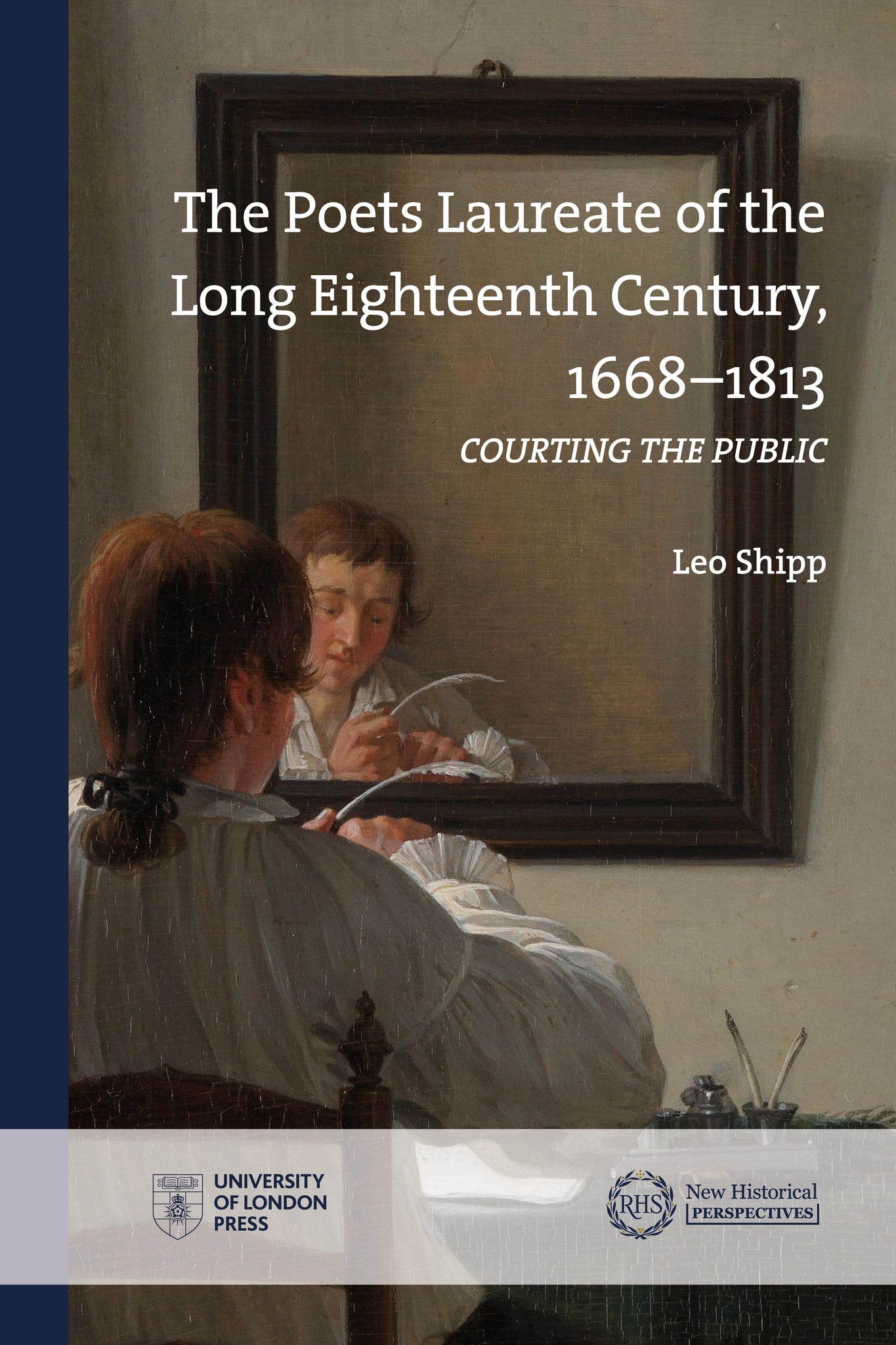We're sorry. An error has occurred
Please cancel or retry.
The Poets Laureate of the Long Eighteenth Century, 1668–1813

Some error occured while loading the Quick View. Please close the Quick View and try reloading the page.
Couldn't load pickup availability
- Format:
-
31 August 2022

The office of the poet laureate of Britain was a highly prominent, relevant and respectable institution throughout the long eighteenth century. First instituted for John Dryden in 1668, the laureateship developed from an honorific into a functionary office with a settled position in court (c.1689–1715), and was bestowed upon Robert Southey in 1813, whose tenure eventually transformed the office. Taking an interdisciplinary approach, this book examines the office’s institutional changes and public reception, the mechanics of each laureate’s appointment, and the works produced by the laureates before and after their appointments. It argues that the laureateship played a key part in some of the most vital trends in eighteenth-century culture.
The conclusion is arrived at by employing a new research paradigm that it calls the conceptual geography of culture. It shows that Britons routinely used spatial concepts to understand culture throughout the period, which became increasingly abstract over time. As part of this, the court evolved from a concrete space in London to an abstract space capable of hosting the entire British public. The laureateship was a dynamic office positioned at the interface of court and public, evolving in line with its audiences. An important intervention in eighteenth-century historiography, this book presents a nuanced understanding of eighteenth-century culture and society, in which the laureateship exemplified the enduring centrality of the court to the British conceptual geography of culture.

HISTORY / Europe / Great Britain / Georgian Era, Social and cultural history, LANGUAGE ARTS & DISCIPLINES / Writing / Poetry, Literary studies: poetry and poets

‘an overdue corrective … demonstrating that the eighteenth-century laureateship was not only an important office, but was well integrated into wider trends in eighteenth-century culture … Shipp’s book should be praised for its deft handling of diverse historical and literary sources, from financial accounts to panegyric forms, and for its style, especially its humour. The book’s primary significance lies in the idea of ‘conceptual geography’, which establishes a promising framework for research beyond the subject of the laureateship.’ — Edward Taylor, University of Birmingham, Birmingham, UK
Introduction. 1. Patronage Asserted: The Formation of the Laureateship, 1668–1715 2. Loyalty Marketed: The Works of the Early Hanoverian Laureates, c.1700–1730 3. Merit Rewarded: The Hanoverian Appointments, 1715–1813 4. Parnassus Reported: The Public Laureate, c.1757–1813 5. “But Odes of S----- almost choakt the way”: Laureate Writings of the Long Eighteenth Century Conclusion.



